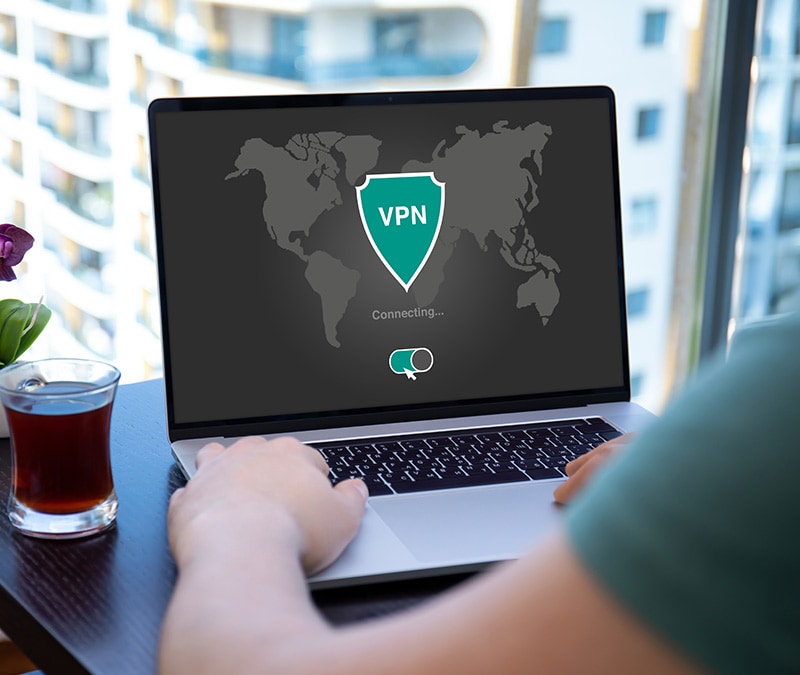Norton VPN’s no-log policy is re-confirmed for 2025
In a world where nearly every click, swipe, and stream can be tracked, protecting your digital privacy is essential. And if you’re relying on a VPN to safeguard your activity, the VPN provider shouldn’t just promise privacy — it should prove it. That’s why Norton VPN undergoes an annual privacy audit to provide independent verification that your data stays yours.

In 2025, Norton brought in independent cybersecurity experts from VerSprite to thoroughly examine its infrastructure. The audit result confirmed that Norton VPN operates without logging user activity. It’s a strong vote of confidence for anyone depending on Norton VPN to browse more securely, anonymously, and freely.
Proof, not promises: how the audit works
In 2025, Norton once again partnered with VerSprite, a respected third-party cybersecurity and privacy consultancy, to conduct a Technical Privacy Impact Assessment (TPIA) of its VPN backend systems and verify the Norton VPN no-log policy.
Think of it as a digital MRI: a deep diagnostic scan of how data moves through Norton infrastructure, where it might be stored (intentionally or not), and whether any of it could be tied back to you, the user.
The audit used real-world threat models and advanced testing, including the PASTA method (Process for Attack Simulation and Threat Analysis), to simulate how attackers might try to exploit Norton VPN backend systems.
The audit focused on server infrastructure, log retention policies, anonymization practices, and how data flows across the VPN ecosystem. The result is a clearer, independently verified view into how Norton VPN protects your privacy.
Key findings: Norton VPN delivers
What did the audit find? Norton VPN’s privacy impact was rated “None” — the best categorization possible. Here’s why we aced it:
- No online activity logs are stored. The audit confirmed Norton VPN doesn’t collect or store browsing history, DNS requests, or IP addresses.
- Metadata retention follows strict deletion policies. Metadata is used strictly for operational purposes like troubleshooting and performance optimization.
- Data practices match published privacy statements. Data collection is backed by clear internal controls, defined retention timelines, and robust anonymization procedures.
- User connection details are protected by design. Default configuration avoids logging IP addresses, and policies enforce log deletion and compression, minimizing the risk of data exposure.
- Production and staging environments matched. The audit wasn’t a one-time performance but a reflection of ongoing, dedicated privacy engineering.
During testing, VerSprite identified a rare situation where IP addresses could be correlated in certain error cases. This was swiftly rectified, and VerSprite verified that it no longer occurs. We’re committed to the online safety and privacy of our users, with transparency as a core principle.
To reinforce user privacy, VerSprite is also conducting the first independent audit of Norton’s proprietary Mimic VPN protocol, with results to be announced soon.
Why a no-log policy matters
A no-log policy means your VPN provider doesn’t collect or store any data about your online activity, helping to mask and protect your digital footprint.
When you use a verified no-log VPN you can rely on:
- No tracking of the websites you visit, when you visit them, or how long you stay on the page.
- No logging of your originating IP address or DNS queries.
- No retention of session logs that could be traced back to you.
The ultimate benefit? True anonymity. Your online behavior isn’t recorded, sold, or exposed, and your digital habits stay yours alone.
More than just compliance
Privacy isn’t just a feature — it’s a philosophy. The transparent approach enshrined at Norton proves that commitment to privacy year after year.
And in order to strengthen user privacy even further, we’ve reduced data retention to the absolute minimum needed to deliver a reliable VPN service and eliminated connection timestamps entirely. That means we can see how many times you connect in a day — but not when, or for how long.
As Himmat Bains explains, "Being transparent about how we handle user data isn’t just a best practice — it’s a responsibility. We're one of the very few VPN providers that openly publish our data retention policies, and that’s something we take pride in. Recently, we've taken this a step further by reducing our retention periods and removing connection timestamps entirely. Our commitment is clear: to collect only what’s absolutely necessary to provide a fast, secure, and reliable VPN experience."
Put proven privacy into practice
To make the most of verified privacy with Norton:
- Read the full audit report — It’s available on the Norton VPN No-log Policy page for anyone who wants to dig deeper into how privacy is maintained behind the scenes.
- Keep your VPN turned on — Whether you’re checking email, streaming, or banking online, enjoy the benefits of a VPN every time you connect.
- Spread the word — Talk to friends still using sketchy VPNs. Because trading your data for privacy doesn’t compute.
In 2025, privacy isn’t a luxury. It’s a right — and Norton VPN just proved it again.
Editorial note: Our articles provide educational information for you. Our offerings may not cover or protect against every type of crime, fraud, or threat we write about. Our goal is to increase awareness about Cyber Safety. Please review complete Terms during enrollment or setup. Remember that no one can prevent all identity theft or cybercrime, and that LifeLock does not monitor all transactions at all businesses. The Norton and LifeLock brands are part of Gen Digital Inc.







Want more?
Follow us for all the latest news, tips, and updates.